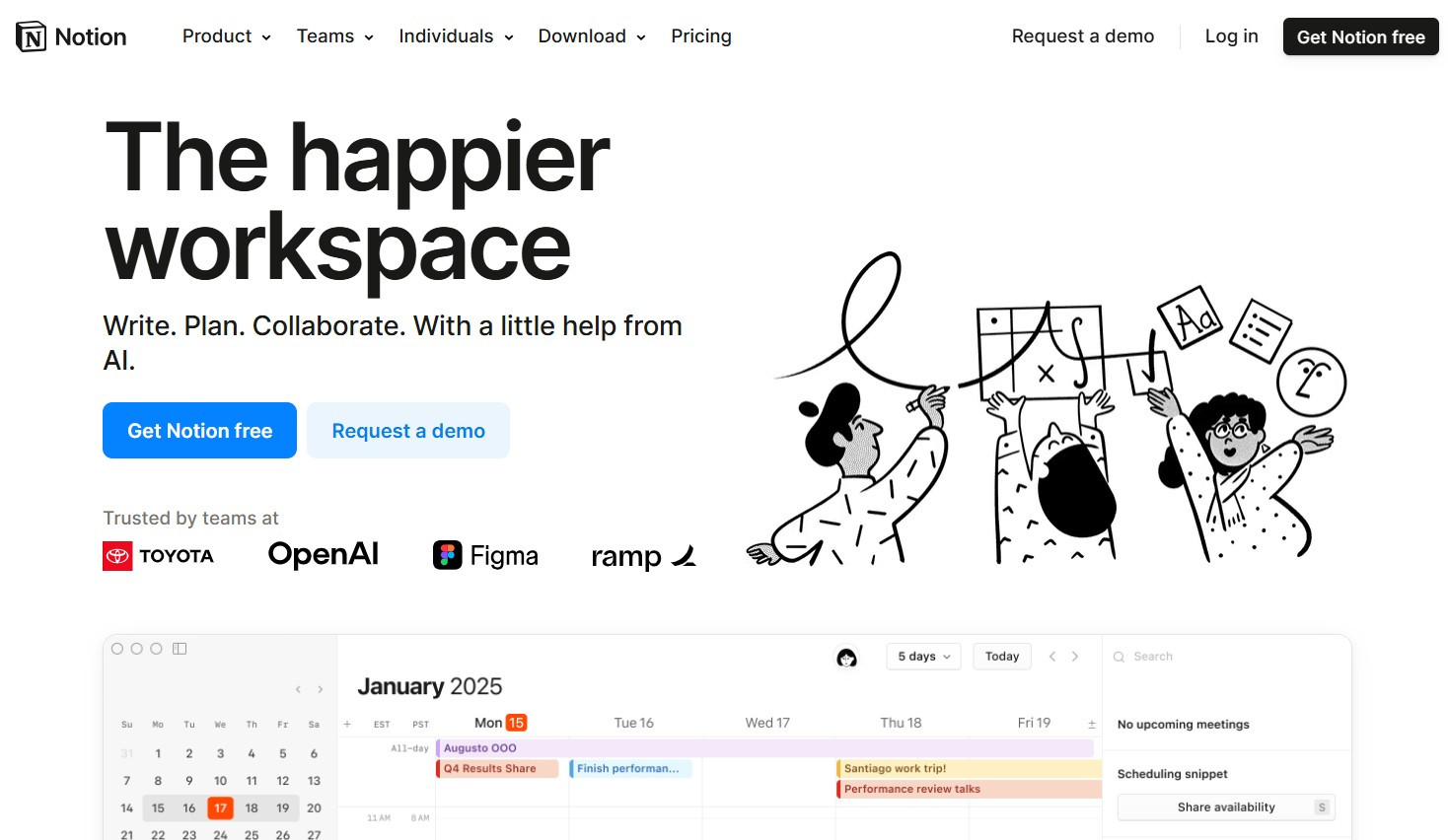In the fast-paced world of technology, successful women in tech aren’t just making waves, they’re setting the bar for others to follow. But what sets these women apart from the crowd? It’s not just about technical skills; it’s about the daily habits that fuel their success. If you’re wondering how these remarkable women keep up with rapidly evolving technologies while maintaining balance, you’re in the right place.
Whether you’re an aspiring tech leader, a software developer, or someone already established in your tech career, adopting the right daily habits for success can make all the difference. In this post, we’ll explore 10 daily habits of successful women in tech that actually work, backed by their consistent effort and intentional routines. These habits not only boost productivity but also help foster growth, confidence, and mental well-being, ensuring these women stay at the top of their game.
Ready to transform your daily routine and unlock your full potential? Let’s dive into the habits that the most successful women in technology swear by!
Habit #1: Starting the Day with Intentional Tech Goals
One of the most effective morning routines of successful women in tech is starting the day with a clear, intentional focus. By setting specific goals right at the beginning of the day, these women ensure that they stay on track and maximize their productivity. Instead of diving into emails or social media, they begin by reviewing what needs to be accomplished in the tech world.

This habit helps in several ways:
- Prioritize Key Tasks: Whether it’s reviewing code updates, debugging issues, or strategizing a new feature rollout, successful women in tech always start with high-priority tasks.
- Avoid Overwhelm: By planning the day ahead, they avoid the stress of deciding what to tackle first. A well-planned morning routine ensures they don’t waste time figuring out where to begin.
- Set Achievable Milestones: Successful women in tech break down larger projects into smaller, achievable goals. This makes it easier to stay focused and motivated.
For instance, they may spend a few minutes reviewing their calendar and task list on tools like Trello or Asana, ensuring they’re aligned with the day’s goals. Whether it’s solving a complex coding problem or preparing for a team meeting, this intentional approach creates a clear path to follow.
By adopting this goal-setting strategy each morning, women in tech can ensure they tackle their most important tasks first, setting a productive tone for the entire day.
Habit #2: Staying Updated with Tech Trends and Tools
In the rapidly evolving world of technology, one of the key habits of successful women in tech is staying up-to-date with the latest trends and tools. As the tech landscape constantly shifts, keeping your skills current is crucial to remaining competitive and innovative. For many women in tech, staying informed is a daily habit that helps them stay at the top of their game.
Here’s how women in tech stay current with technology trends:
- Reading Industry News: Successful women in tech often subscribe to leading tech newsletters, such as TechCrunch, Wired, or The Verge. This allows them to catch up on the latest developments, emerging technologies, and innovative tools.
- Joining Tech Forums and Communities: Participating in online tech forums, such as Stack Overflow or GitHub discussions, helps them learn from peers, share knowledge, and stay in the loop with the latest tech debates and discoveries.
- Watching Short Tutorials: Many women in tech dedicate a few minutes each day to watching quick video tutorials on platforms like YouTube or LinkedIn Learning. This helps them master new coding languages, tools, or software updates, all in bite-sized pieces.
By staying connected to these resources, women in tech not only keep their skills sharp but also remain aware of industry changes that could impact their work. Whether it’s through reading articles, engaging with fellow professionals, or learning something new, staying updated is essential for long-term success in tech.
Habit #3: Daily Skill-Building through Microlearning
One of the most effective daily learning habits for women in technology is incorporating microlearning into their routine. With the fast-paced nature of tech, finding time for long study sessions can be challenging. However, successful women in tech make it a point to dedicate small, focused time blocks each day (usually 15 to 30 minutes) to sharpen their skills.

Microlearning helps break down complex topics into manageable chunks, making it easier to stay consistent with skill development without feeling overwhelmed. Here’s how women in tech make the most of these short learning bursts:
- Coding Practice: Women in tech often spend 15–30 minutes solving coding problems on platforms like LeetCode, Codewars, or HackerRank. This helps them stay sharp with their coding skills and learn new techniques.
- Design and UX: Many women also set aside time each day to learn or practice new design tools like Figma or Adobe XD. These tools help enhance their design capabilities and keep them aligned with current trends in user experience.
- Learning New Frameworks or Languages: Whether it’s a new JavaScript framework, a Python update, or diving into machine learning, microlearning allows women in tech to stay current with new technologies without the pressure of long study sessions.
By incorporating these daily learning habits, women in technology continuously build on their expertise. These 15-30 minute blocks of focused learning add up over time, making a significant impact on both their confidence and career progression.
Habit #4: Practicing Problem-Solving and Coding Challenges
One of the most effective ways women in tech improve coding skills daily is by engaging in problem-solving and coding challenges. These challenges help develop critical thinking, sharpen coding abilities, and stay agile in a rapidly changing tech environment. Successful women in tech know that consistent practice is key to keeping their skills sharp and staying ahead of the competition.
Here’s how women in tech use daily problem-solving to improve their coding skills:
- LeetCode: Platforms like LeetCode offer daily coding challenges that range in difficulty, making them an excellent resource for improving algorithms, data structures, and problem-solving skills. Many women dedicate 15-30 minutes each day to tackling a new problem, which helps them think critically and improve their speed.
- HackerRank: Another popular platform, HackerRank, provides a wide range of coding challenges in different programming languages. By solving daily challenges, women in tech can diversify their skill set and stay on top of the latest coding practices.
- GitHub Contributions: Contributing to open-source projects on GitHub allows women to collaborate with others, review code, and tackle real-world coding problems. Regular contributions can not only improve their technical skills but also build their professional reputation in the tech community.
These consistent problem-solving habits help women in tech stay adaptable, confident, and prepared for complex challenges. By dedicating just a small portion of their day to coding practice, they’re able to continuously improve their technical abilities and maintain a competitive edge.
Habit #5: Building and Maintaining a Strong Tech Network
A strong professional network is crucial for success in any career, and networking tips for women in tech careers often emphasize the importance of daily engagement with peers, mentors, and industry leaders. Building and maintaining a tech network doesn’t have to be time-consuming, successful women in tech know that even small, consistent interactions can lead to valuable connections and new opportunities.

Here’s how women in tech build and sustain their networks on a daily basis:
- LinkedIn Engagement: Women in tech often use LinkedIn to connect with colleagues, share industry insights, and participate in relevant discussions. By liking, commenting, and posting regularly, they keep their network engaged and visible to potential collaborators, employers, or clients.
- Slack Communities: Many women in tech are active in specialized Slack groups focused on coding, women in tech, or specific tech fields. These groups provide a space for daily conversations, problem-solving, and support from fellow professionals. It’s a great way to stay connected, learn from others, and offer advice or resources.
- Tech Twitter: Twitter has become a hub for tech professionals to share news, resources, and opinions. Many women in tech use Twitter to engage with others in the community, participate in hashtag chats, and stay up-to-date with the latest trends and discussions.
By consistently engaging on these platforms, women in tech build a network that not only helps them grow professionally but also opens doors to new career opportunities, collaborations, and learning experiences.
Habit #6: Mentorship: Giving and Receiving Daily Support
One of the most impactful mentorship habits for women in tech leadership is the consistent practice of both giving and receiving support. Mentorship is a two-way street, while women in tech seek guidance from more experienced mentors, they also make it a priority to pass on their knowledge and provide mentorship to others. This cycle of learning and teaching helps build a strong, supportive community within the tech industry.
Here’s how successful women in tech incorporate mentorship into their daily routines:
- Giving Back: Successful women in tech often dedicate time each day to check in with their mentees. Whether it’s offering advice on technical challenges, sharing resources, or simply providing encouragement, these women understand the importance of giving back and lifting others up.
- Asking for Feedback: Mentorship is not just about giving, it’s also about learning. Asking for feedback from mentors or colleagues helps women in tech refine their skills, identify growth areas, and stay on track with their career goals. A quick daily check-in can make a huge difference in personal and professional development.
- Checking In with Mentees or Mentors: Women in tech often take a few moments each day to connect with their mentees or mentors. This might involve a quick message or casual conversation to discuss progress, challenges, or celebrate wins. Regular check-ins help maintain a strong mentorship relationship and ensure both parties stay engaged.
By prioritizing mentorship every day, women in tech not only enhance their own skills but also contribute to the growth of others in the industry, fostering a cycle of continuous support and leadership.
Habit #7: Managing Time and Tasks with Tech Productivity Tools
One of the key best productivity tools for women in tech is mastering the use of technology to stay organized, focused, and efficient. Successful women in tech understand that time management is essential for maintaining productivity and reducing stress. By incorporating productivity tools into their daily routines, they can keep track of tasks, collaborate with teams, and ensure they’re meeting deadlines.

Here’s how women in tech manage their time and tasks using productivity tools:
- Notion: Notion has become a favorite tool for many women in tech due to its flexibility. It allows users to create personalized dashboards for tracking tasks, setting goals, and organizing notes. Many women use Notion to manage both personal and professional projects, ensuring nothing falls through the cracks.
- Trello: Trello’s intuitive kanban boards help women in tech organize tasks visually. By breaking down larger projects into smaller tasks, women can prioritize and track their progress easily. Whether it’s managing a development project or planning a team meeting, Trello is an essential tool for staying on top of daily work.
- Asana: Asana is another popular tool that helps women in tech stay organized. It offers task assignments, deadlines, and project timelines, making it easier to collaborate with team members and ensure everyone is aligned. Women often rely on Asana’s daily to-do lists to track short-term and long-term goals.
By incorporating these tools into their daily routines, women in tech streamline their work processes, improve team collaboration, and maintain a high level of productivity.
Habit #8: Practicing Mindfulness to Avoid Burnout
Maintaining mental wellness is crucial for women in tech, as the fast-paced and demanding nature of the industry can easily lead to burnout. Mental wellness tips for women in tech jobs often emphasize the importance of mindfulness practices to recharge, reduce stress, and improve overall well-being. Incorporating mindfulness into a daily routine helps women stay focused, calm, and productive while protecting their mental health.
Here’s how women in tech practice mindfulness to avoid burnout:
- Quick Meditation Sessions: Many women in tech incorporate short meditation sessions into their daily routine, often using apps like Headspace or Calm. Even just 5-10 minutes of focused breathing or guided meditation can help clear the mind, reduce stress, and increase clarity for the day ahead.
- Journaling: Writing down thoughts, reflections, or goals is another simple but powerful mindfulness habit. Journaling allows women to process emotions, organize their thoughts, and reflect on accomplishments, helping them stay grounded and focused.
- Unplugging from Screens: After a long day of coding, meetings, and problem-solving, successful women in tech make it a habit to unplug from their screens and digital devices. Taking time to disconnect from technology in the evening allows for mental rejuvenation and helps to establish a healthy work-life balance.
By practicing mindfulness daily, women in tech avoid burnout, increase productivity, and maintain a sense of well-being that supports long-term success in their careers.
Habit #9: Advocating for Themselves at Work
One key habit for how successful women in tech set boundaries at work is actively advocating for themselves in the workplace. By confidently expressing their needs and setting clear boundaries, women can create a healthier work-life balance, pursue career growth, and ensure their contributions are recognized. Successful women in tech understand that advocating for themselves isn’t just about personal gain, it’s about creating a more equitable and respectful workplace.
Here’s how women in tech advocate for themselves at work:

- Asking for Raises: Women in tech know the importance of negotiating their salary and asking for raises when deserved. By tracking their accomplishments and contributions, they are able to confidently present their case to management, ensuring they are compensated fairly for their work.
- Saying No When Necessary: Setting boundaries is crucial to avoiding burnout. Women in tech who are skilled at advocating for themselves know when to say no to tasks that may overload them. Whether it’s turning down additional projects or refusing unrealistic deadlines, they prioritize their well-being and focus on what matters most.
- Standing Up in Meetings: Successful women in tech speak up in meetings, offering their ideas, challenging assumptions, and advocating for their perspectives. They make sure their voices are heard, ensuring they are contributing to discussions and decisions that shape the direction of their teams and projects.
By practicing self-advocacy daily, women in tech gain respect, control over their careers, and create an environment where their work and boundaries are valued.
Habit #10: Celebrating Small Wins and Reflecting on Progress
Celebrating small wins and reflecting on progress is one of the most important daily confidence boosters for women in tech careers. Acknowledging achievements (no matter how small) helps boost motivation, reinforce positive behavior, and maintain a growth mindset. Women in tech who take the time to celebrate their successes are more likely to stay focused, energized, and confident in their abilities.
Here’s how women in tech celebrate their small wins and reflect on their progress:
- Reflecting on What Went Well: Taking a moment each day to reflect on what went well can help women in tech stay focused on their achievements. This could be as simple as acknowledging completing a task on time or overcoming a challenge. By focusing on the positives, women reinforce their sense of accomplishment and build momentum.
- Saving Positive Feedback: Many women in tech keep a collection of positive feedback they’ve received from colleagues, managers, or clients. Whether it’s an email of praise or a shout-out in a meeting, saving this feedback serves as a reminder of their skills and contributions, helping to build long-term confidence.
- Journaling Success: Journaling is a powerful way to reflect on personal and professional growth. Women in tech often use journaling to document their daily wins, progress on projects, or even challenges they’ve overcome. This practice not only boosts confidence but also provides valuable insights into their journey.
By celebrating small wins and reflecting on their progress every day, women in tech maintain a strong sense of achievement, which helps them tackle future challenges with confidence and resilience.
Conclusion: Building Success, One Habit at a Time
The journey to success for women in tech is not defined by a single moment, but rather by the consistent, daily habits that drive growth, productivity, and personal well-being. By adopting these 10 habits, women in tech can set themselves up for long-term success, from starting each day with intentional goals to celebrating their achievements and fostering a strong network. Whether it’s through mindfulness, skill-building, or advocating for themselves at work, these small but powerful actions create a foundation for career advancement and a healthier work-life balance.
As you integrate these habits into your own routine, remember that success in tech is a marathon, not a sprint. Every step (no matter how small) contributes to building a fulfilling and impactful career. Stay consistent, stay connected, and most importantly, stay true to your goals. With the right mindset and practices in place, you can navigate the ever-evolving tech landscape with confidence, resilience, and purpose.


